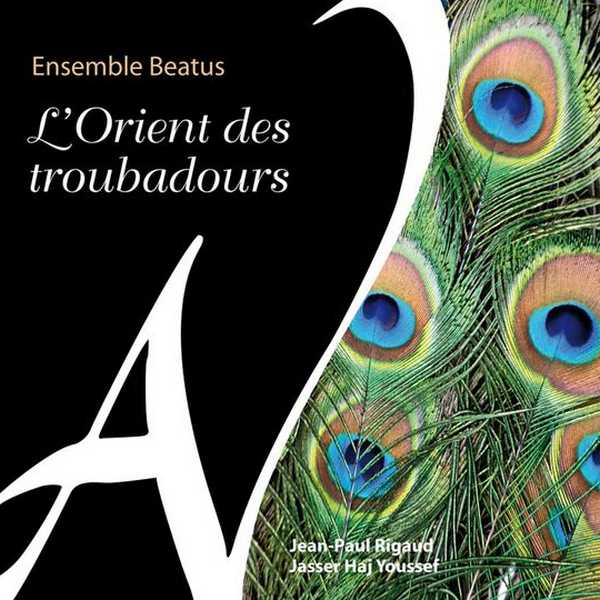
Composer: Gaucelm Faidit, Jaufré Rudel, Uc de Saint Circ, Peire Vidal
Performer: Ensemble Beatus, Jean-Paul Rigaud, Jasser Haj Youssef
Format: FLAC (tracks)
Label: Ad Vitam Records
Catalogue: 9940
Release: 2011
Size: 262 MB
Recovery: +3%
Scan: yes
01. Anonyme 11ème siècle: Venite populi
02. Rigaud: Farai un vers
03. Vidal: Pois vezem
04. Vidal: Pois tornatz
05. Youssef: Maqâm
06. Rudel: Lanquan li jorn
07. Rigaud de Barbezieu: Atressi cum Persavaus
08. trad.: Bachraf Samai Isbain
09. Saint Circ: Tres enemics
10. trad.: Dhil
11. Rimbaud de Vaqueiras: Ara-m requier
12. Faidit: Lo gent cors onratz
One of the purposes behind the album L’Orient des Troubadours is to demonstrate the extent of the influence of Arabic music, poetry, and cultural values on the 12th and 13 century troubadours. It includes songs of courtly love by well-known troubadours like Guillaume IX, Peire Vidal, and Jaufré Rudal, as well as anonymous songs and instrumental pieces. From the music’s opening notes, the listener is taken to a remote and unfamiliar world. The tuning system most used in the Medieval era was based on Pythagorean ratios and sounds immediately exotic (or simply out of tune) to ears accustomed to the equal temperament characteristic of the piano that is, with a few exceptions, the basis for all Western classical music since the Classical era. The songs were written for solo voice with an accompaniment improvised on a string instrument, originally frequently played by the singer. Using a viola d’amore, Jasser Haj Youssef provides an inventive and very active accompaniment that has as much character and individuality as the vocal line and is worlds apart from the standard strumming typical of many modern guitar accompaniments. Baritone Jean-Paul Rigaud has an attractive, immediately appealing voice that is obviously classically trained but that he deploys with the unmannered directness of a folk singer. He brings warmth and passion to these ardent love songs. The songs are far more melodically complex than most of the liturgical chant that was being written at about the same time and they have an emotional expressiveness that’s unmistakable even for listeners for whom the idiom is entirely foreign. The sound quality is very clean and spacious as well as intimate. The album should have strong appeal for anyone interested in very early music.